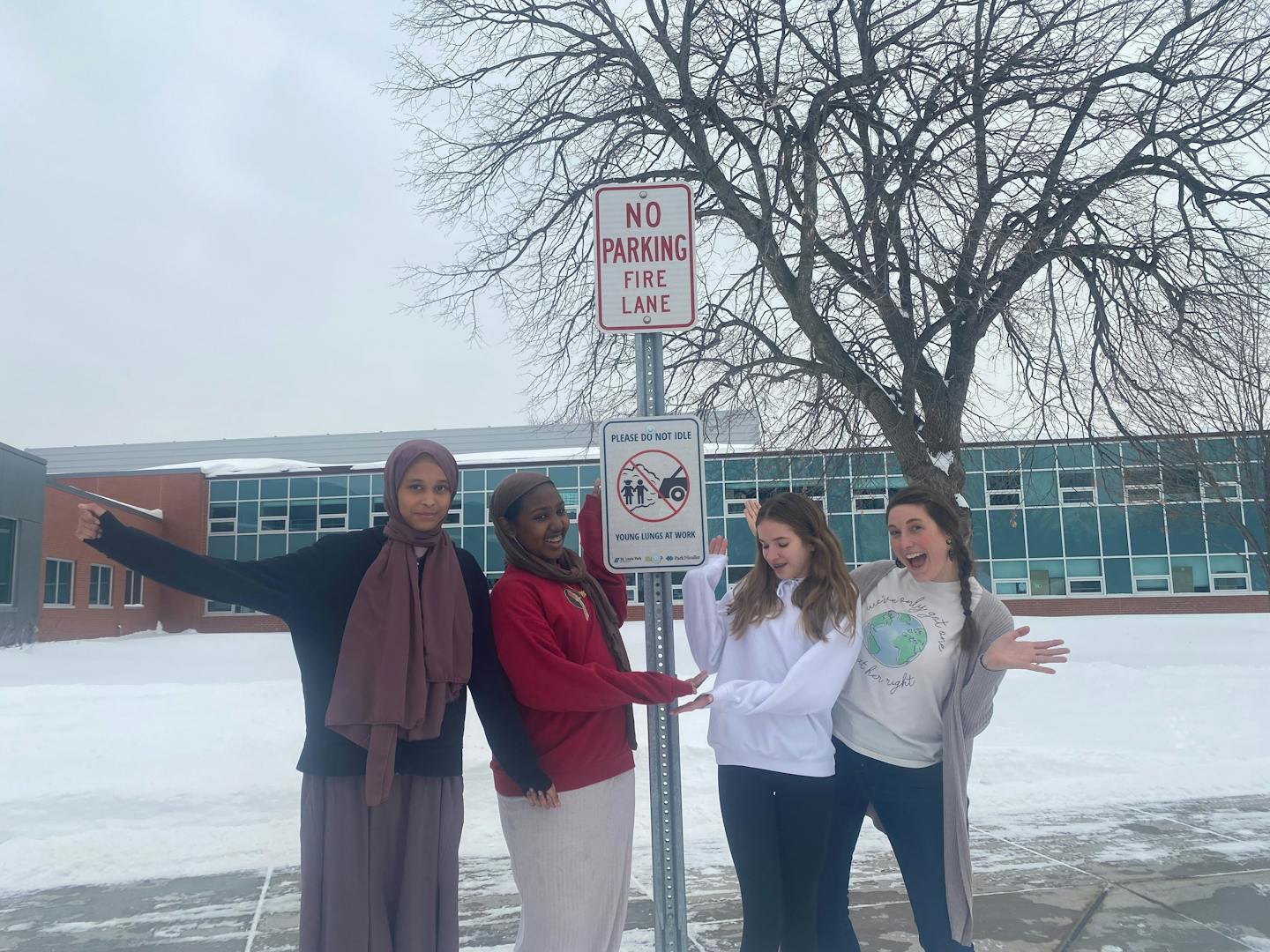The mission of Upcycle Thrift is written out in large letters on a chalkboard in the classroom shop at Roosevelt High School: create an alternative to fast fashion.
The popular thrift store offering free goods for students and staff is the work of the Minneapolis high school's Green Team, a sustainability club whose more than 20 members wanted to go beyond talking about pollution and climate change.
"What can we actually do as students, given we have to exist in this world we were born into?" freshman Eleanor Nervig said of the shop's origin. "Creating something doable like this can be really powerful so students can feel that they can actually help."
Students across Minnesota are asking similar questions about their ability to enact change in confronting the global climate crisis. They're finding answers in a variety of projects aimed at helping the environment and their communities. Along the way, their teachers say, they're learning about leadership, taking initiative and the collective power of individual actions.
"These guys impress me so much because they are growing up in a time where you can start to feel overwhelmed or give up," said Katie Carter, a Roosevelt science teacher and advisor for the Green Team. "But this is something really tangible that they can feel good about."
People driving around St. Louis Park have likely seen the result of an idea that originated with three middle schoolers last spring. This fall, signs went up in front of city buildings, schools and hospitals across the suburb to remind drivers that idling cars emit harmful emissions for the environment and those breathing them in.
The "Idle Free SLP" campaign was born after a few city staffers sat in on sixth-grade science class presentations last school year. As part of a unit on climate change, three students — Erin Enright, Ibtisam Ahmed and Suwaydah Aden — collected data and realized that about half an hour before school let out, well over half of the cars outside the school were idling.
"We could see it was a really big problem at our school," Ahmed said. "We really didn't think at first that it would be something big and lead to actual signs."
Mehgan Setten, the science teacher who assigned the class presentation last year, is impressed by the students' commitment. And it's having a ripple effect — Setten's current sixth graders are already talking about the projects they want to start.
"These three are like the ignition to getting people excited about taking action," Setten said.
Erin said seeing the signs around the city has been empowering.
"Before last year, I never thought I had a voice or the ability to make a change like this," Erin said. "But I found out I could do something, and it's really cool that it's helping other students realize they have that ability."
Donna Brunskill, a science teacher at John Adams Middle School in Rochester, said her students have gained leadership skills and a sense of personal agency from an ongoing effort to install a bicycle repair station near the school.
The work is supported by Conservation Crew, a statewide program that encourages middle-schoolers to design and implement conservation projects. The students started with a few "pie in the sky" ideas, Brunskill said, and learned how to identify a feasible solution that would benefit others.
"They get that feeling that they are an important part of our world," Brunskill said. "That matters in the whole scheme of self-esteem, fitting in and leadership development at that age."
Thrifting is "in"
Members of the Green Team at Roosevelt High in Minneapolis are learning valuable skills as they work to stock, promote and run the store in what was an empty classroom. A few of them have snagged some new-to-them outfits as an added perk.
Upcycle Thrift's stock comes from donations. It's both an eco-friendly shopping option for all and a resource for students in need.
Thrifting is "in," the students said, so shopping at the store doesn't have to be embarrassing. It's proven a hot destination after school — the first few days it was open in December, dozens of students formed a line snaking down the hallway, waiting for their turn to shop.
Owatonna High School also has a Green Team that has offered pop-up, temporary thrift stores and held a thrifted costume contest last fall. Starting next year, the club members hope to create a more permanent thrift store, said the club's advisor, science teacher Sara Brickley.
"These students really want to act," Brickley said. "Especially after the pandemic where so many of us felt really helpless, they want to know what they can do to help others, to help a community and to ensure a sustainable future."
As he folded a pile of t-shirts at Upcycle Thrift on a recent afternoon after school, Roosevelt freshman Michael Murphy said he joined the Green Team because he was looking for a club that was service-oriented.
"We're really trying to make change," he said. "And we're actually achieving something."







